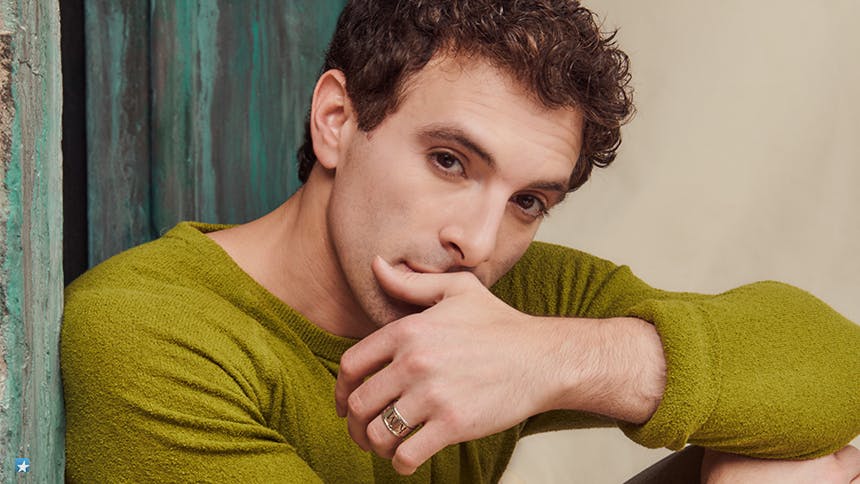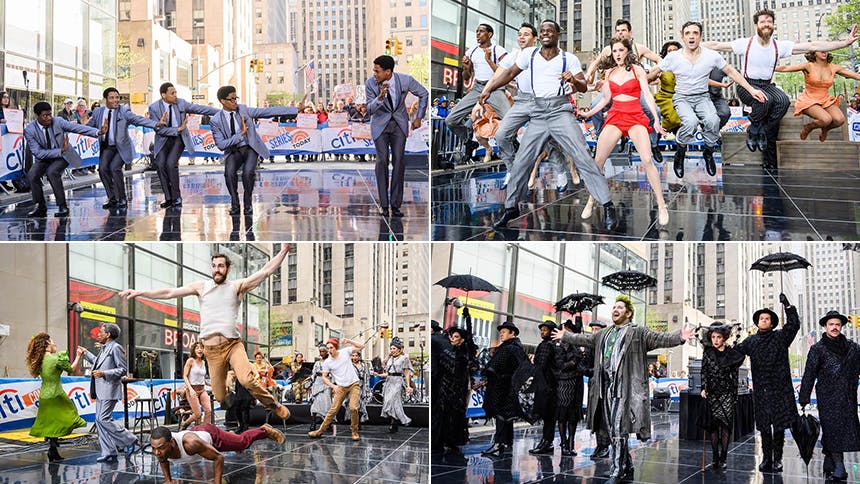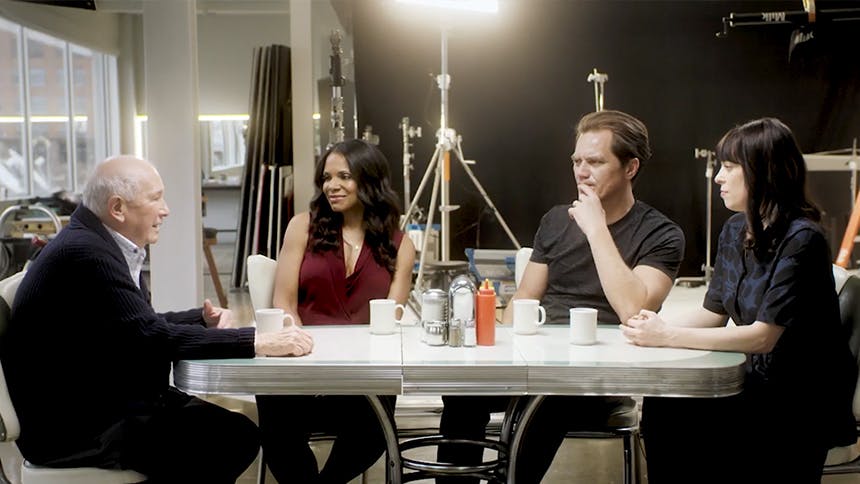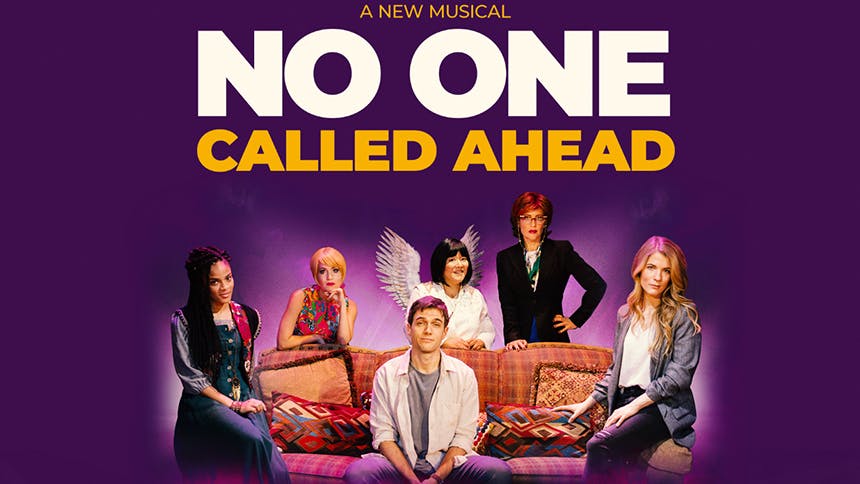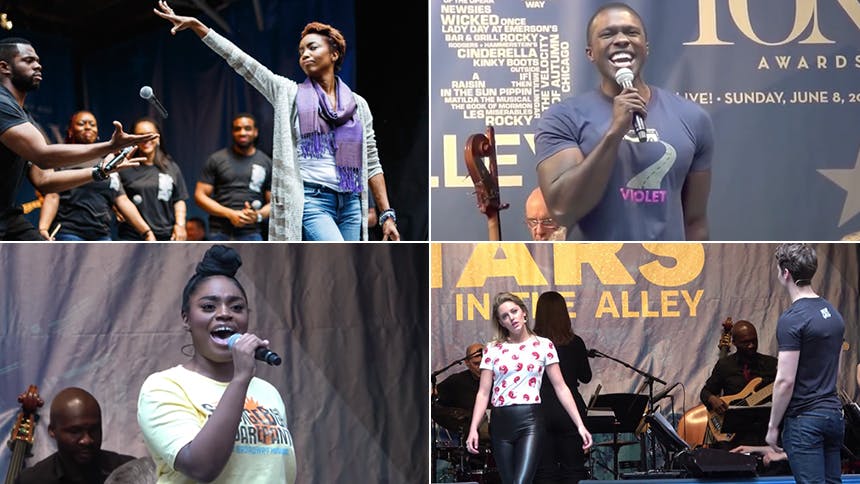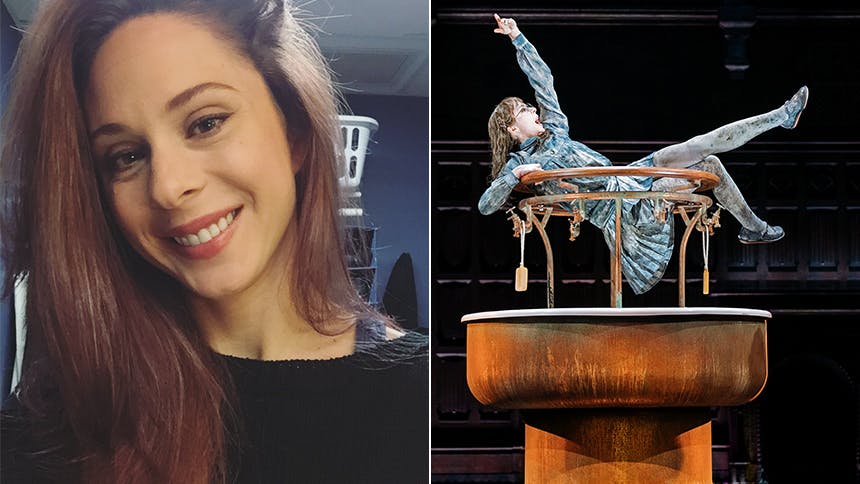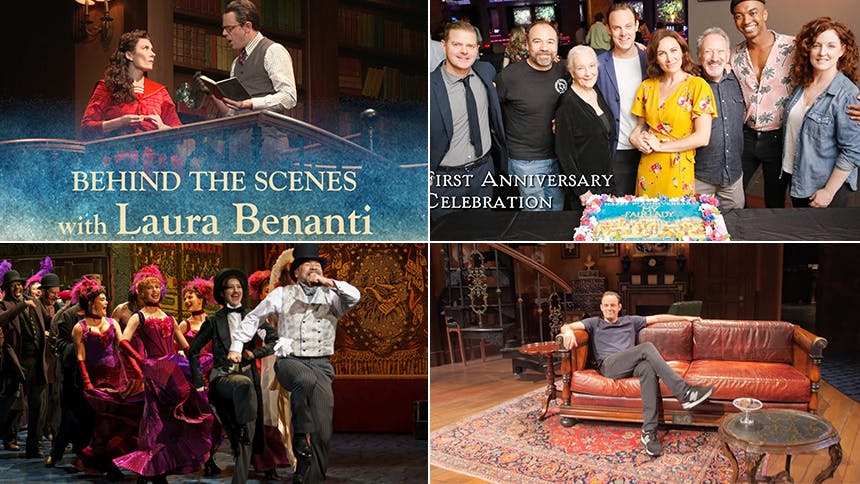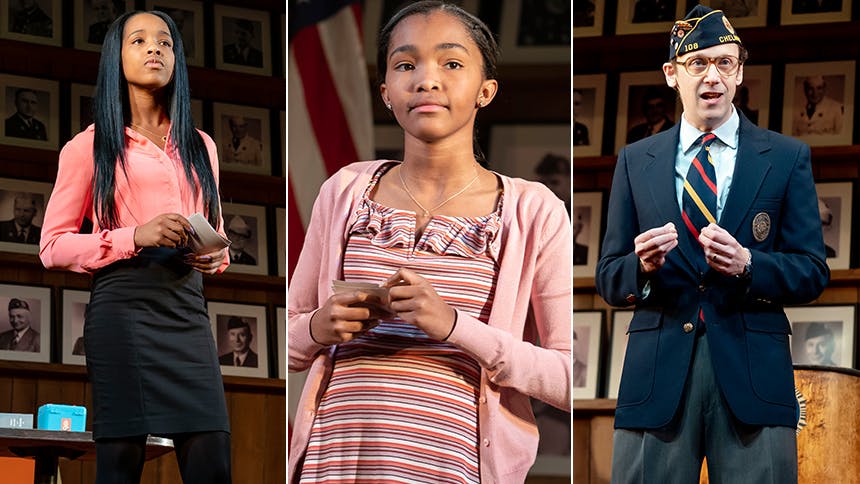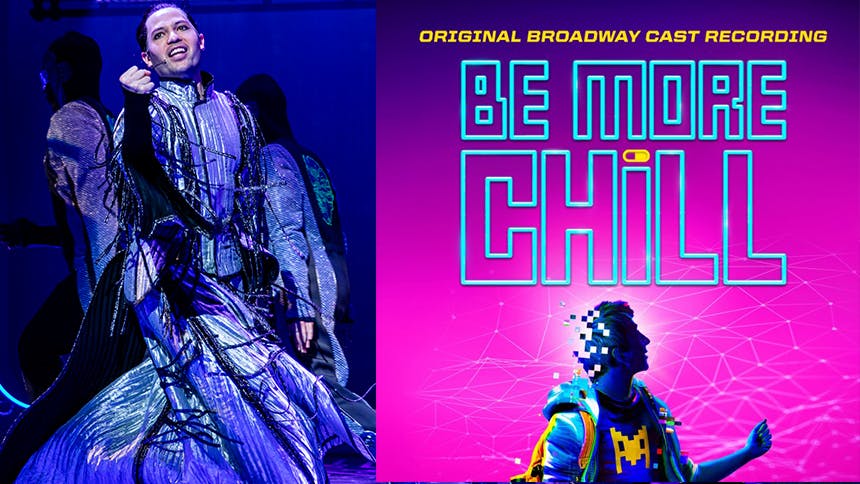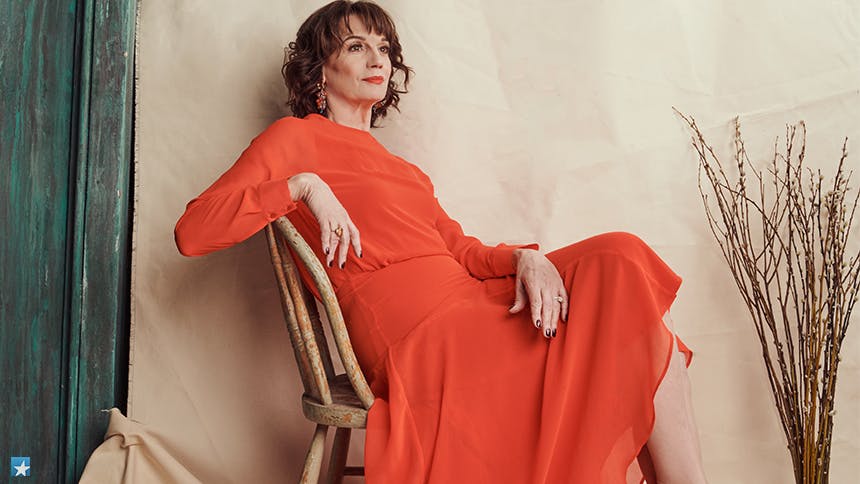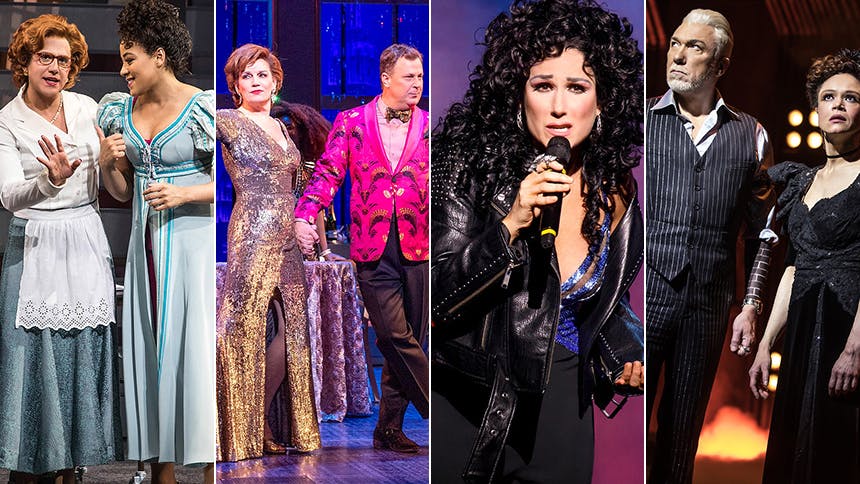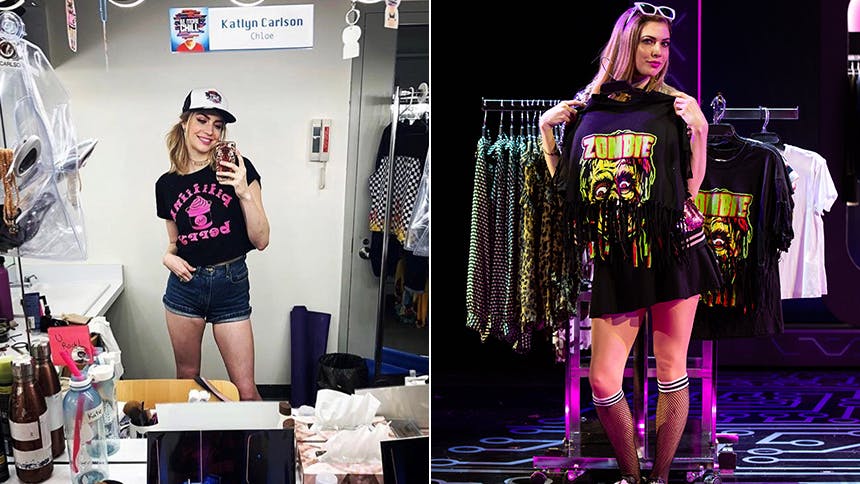The Broadway showstopper is alive and well and living its best life this season, thanks to the 10 incredible performers featured in our upcoming spring photo & interview series. The talented group was photographed by Jenny Anderson at Times Square's Haswell Green's. Next up is Jarrod Spector, who elicits audible gasps and cheers as Sonny Bono in The Cher Show. From the moment he steps onstage at the Neil Simon Theatre, audiences are as taken with his Sonny Bono as the teenage Cher so obviously is, and when he and Micaela Diamond sing the iconic Sonny & Cher duet "I Got You Babe" it's everything you could want and hope for from a Cher musical. Then his "Dark Lady" duet with Matthew Hydzik in Act II is one of the fiercest moments in the show. Beyond impressive impersonation, Jarrod brings a depth and dimension to Sonny that only a great theatre artist could mine.
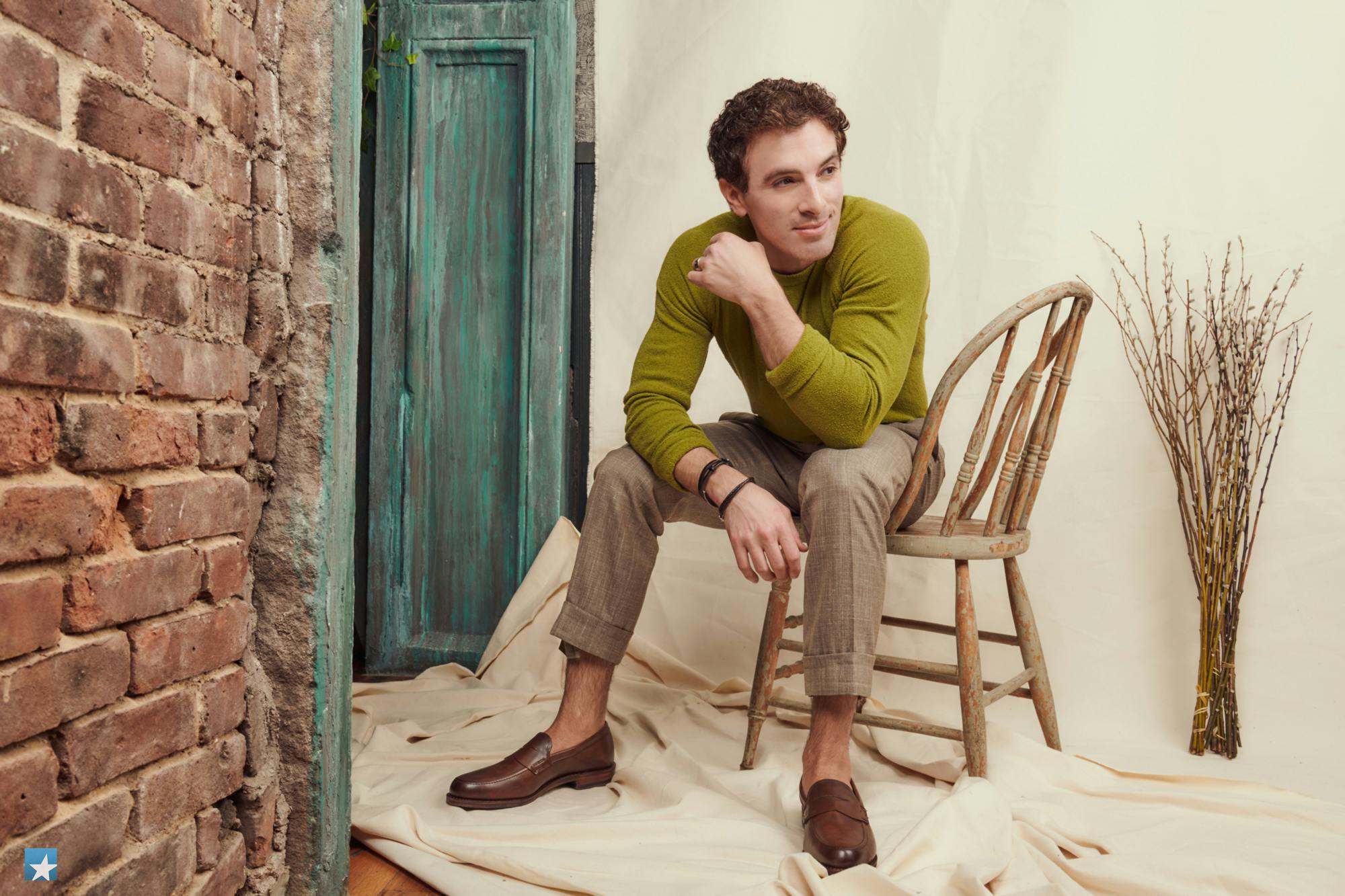
1. You're cast as Sonny Bono. Where do you begin your process? How did you find Sonny?
I had a real leg up in this because, a year before, I was given the offer to play Sonny Bono in the very first reading of this show in January 2017. A year prior, I did a series of concerts all about musical married couples with my wife, Kelli Barrett, at 54 Below, and of course we covered Sonny Bono. And the perfectionist that she is, we watched every single episode of The Sonny & Cher Comedy Hour and listened to every one of their hits just over and over again, until we could really capture their vibe; and I could do the voice, and she could do the voice, and we could even come up with their comedy style. So, when I got the offer, it was like kismet. It would have been so hard to do the amount of work I had to do to walk into the room on the first day for a two-week reading where you don't get much of a process. Having all of that work in me for a year and a half leading up to it was invaluable.
I was really able to feel comfortable, at least with all of the externals, and then I could just do the normal actor's job, which is read the script, analyze it, and figure out where my character fits in the journey of the protagonist. And that's what I ended up doing. Of course, playing a legend like Sonny Bono is a little bit overwhelming, and it's a little bit intimidating, and you know you have to meet people's expectations—especially Cher who was there for the very first presentation. But I really did feel like the universe was looking out for me a little bit.
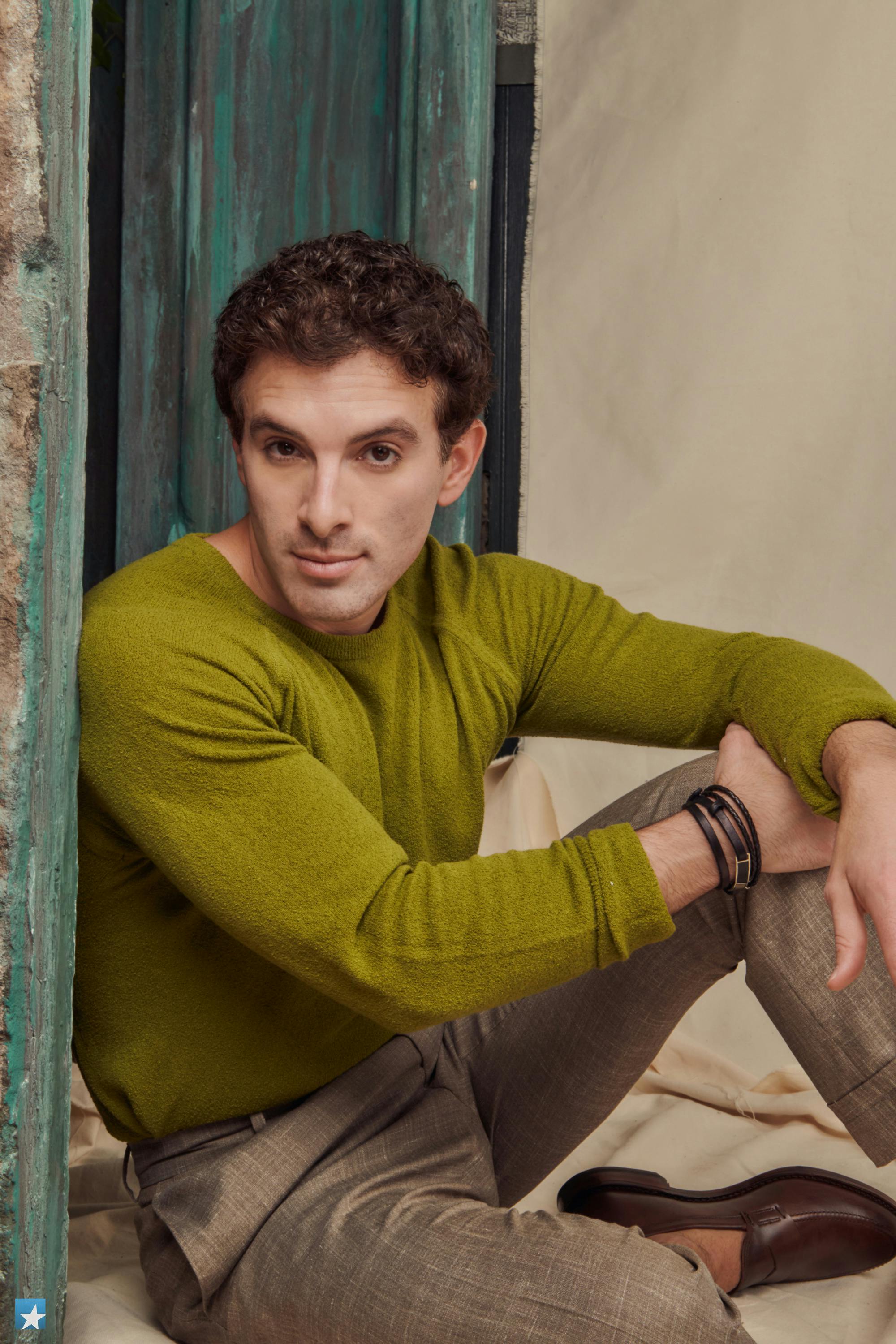
2. This is your third time on Broadway playing a real-life music legend. You were a beloved Frankie Valli in Jersey Boys; you scored a Tony nomination for Barry Mann in Beautiful; and now you’re Sonny. What's the give and take of creating something new and theatrical versus respecting the legacy of Frankie, Barry, and Sonny?
I think it's a balancing act. On the one hand, a lot of choices are made for you going in, which on some level makes things easier. You can't decide that Frankie Valli has a tick or that Sonny walks with a limp. Those aren't options. So, your external choices are limited for you, and you have the added pressure and privilege of presenting a real-life person to an audience that has very real expectations, memories, and nostalgia for that person. The other side of it is that you still have to tell the story. And for me, it's really about finding the pillars of what makes that person famous.
Barry Mann is famous as a songwriter, and therefore, people don't necessarily walk in with a heightened familiarity of who Barry Mann is and sounds like. But now, you play Frankie and Sonny and it's like, “Okay what are they known for?” For me, Frankie Valli is about the voice, more than anything. Then you play Sonny, and it's a whole different level. It's all the same stuff as Frankie—it's the voice, and it's just as specific if not quite as high—but then it's also his laugh, his walk, his comedy, and his faces. Sonny was not just a music star, he was also a television star, and he was also a politician, and he was famous for a long time. So being able to find those pillars so that people can walk in, latch on to a couple of those things, and then be able to suspend disbelief for the rest of the show so we can do the job of just telling the story.
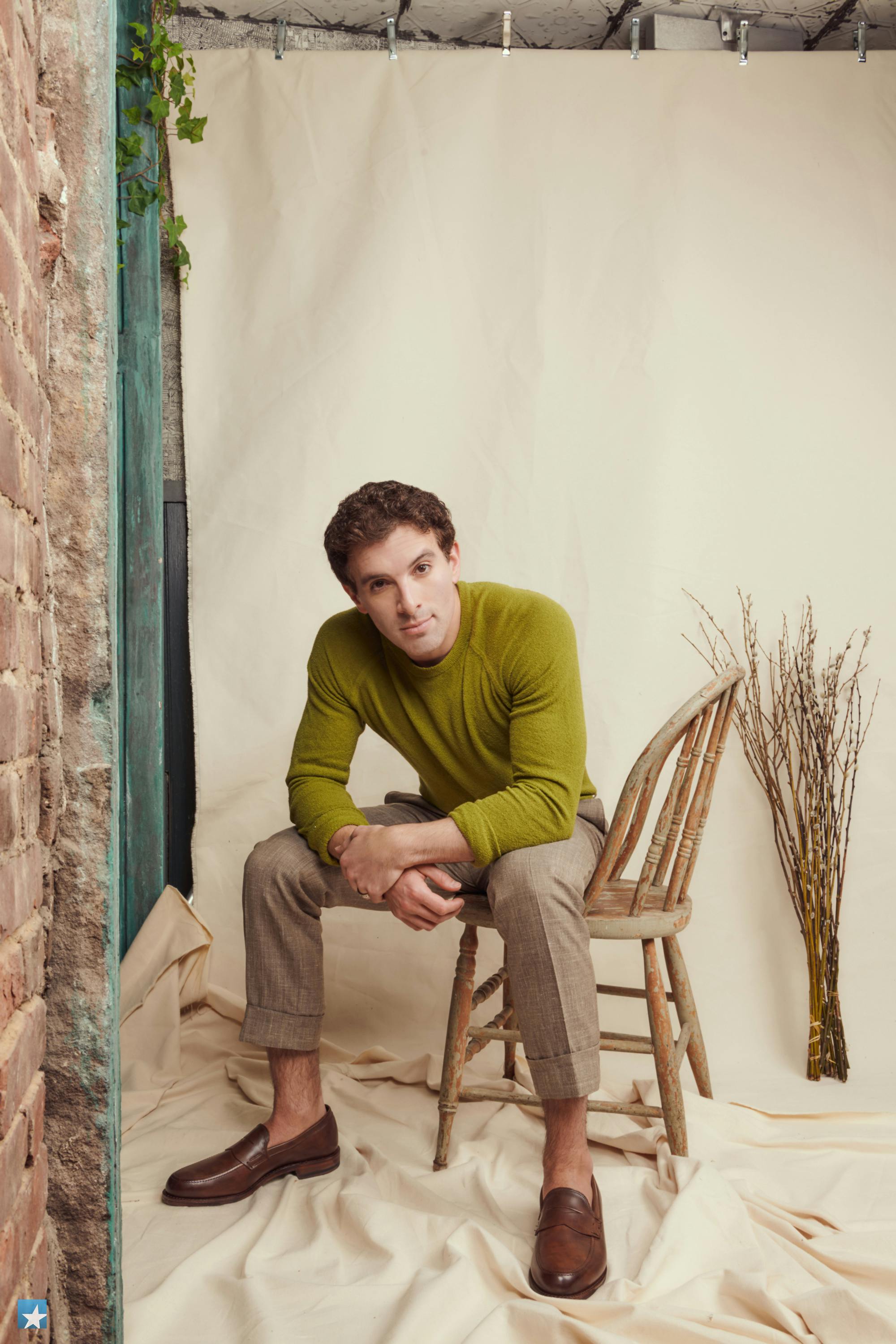
3. I've seen The Cher Show twice now, and both times the audience has an audible reaction when you start singing as Sonny. What does that feel like for you?
It's affirmation that we've all done our job. Rick Elice has written in everything to build to that moment. They layer things in: you see him first, then you hear him speak, and then, not only do you hear him sing for the first time, you hear him sing in “I Got You Babe” for the very first time 30 minutes into the show. Everyone has been waiting all this time for this moment. It’s a testament, of course, to Rick Elice, our writer, who did something very similar with Marshall Brickman when they wrote Jersey Boys, and everyone waited forty-five minutes to hear “Sherry” for the very first time. Everyone has worked together to build to this moment and make it as authentic as possible. My job is to be as authentic to Sonny and as loyal to the script that was given to me as possible. When I sing those first lyrics and the audience applauds and gasps and grabs one another, and you hear people whispering, it's all of those things coming together in this really beautiful moment and the pay off in this ultimate team sport that we do.
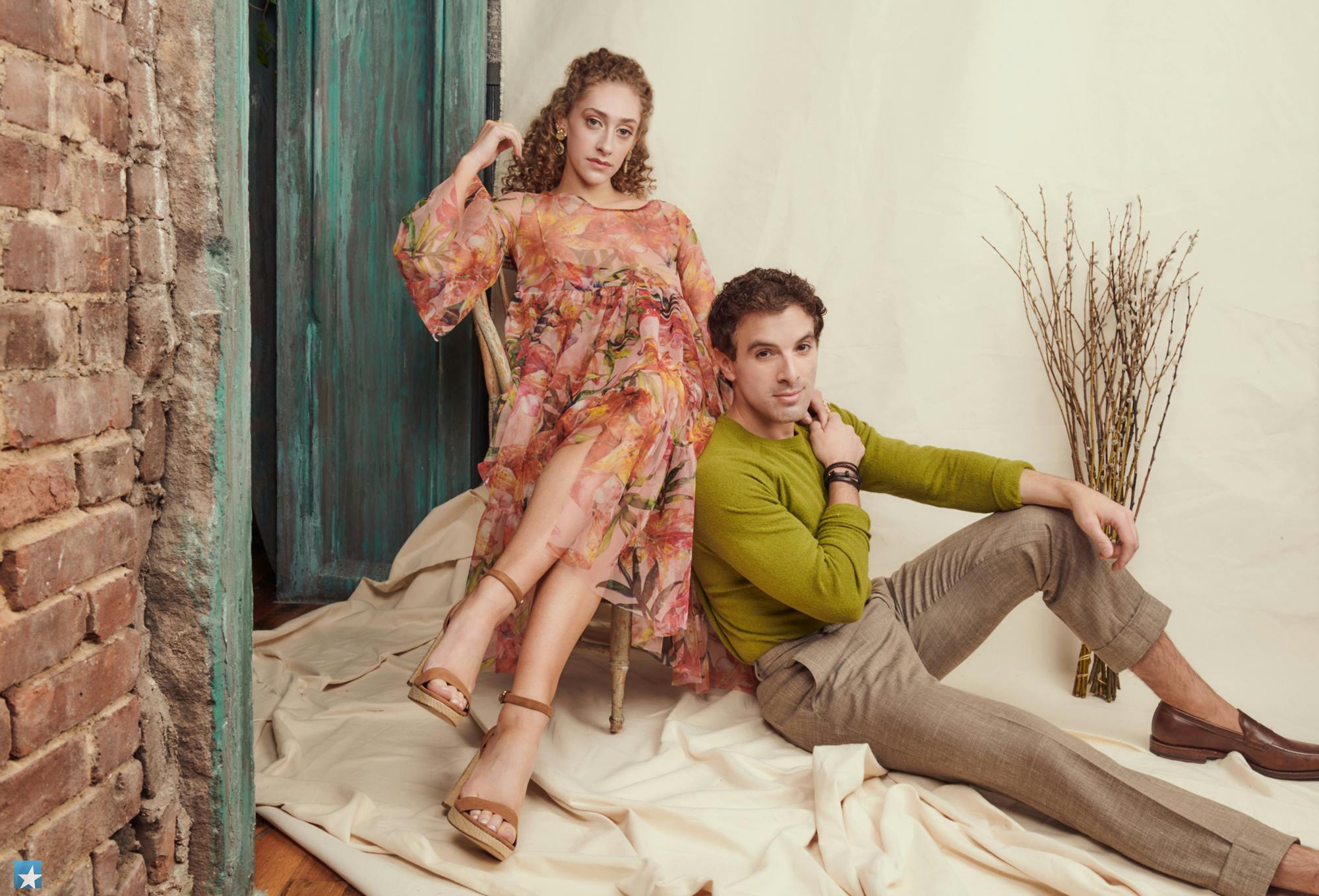
4. Tell me about finding “I Got You Babe” with Micaela Diamond and working so closely with her to bring us the Sonny and Cher that the world first fell in love with.
Micaela and I met during the lab in the fall 2017. I walked in the first day, and I'm in my thirties, and here's this eighteen-year-old, and you're like, "Wow, how in the hell is this going to work out?" Not every eighteen-year-old is created equal, and in this moment in time I'm very grateful for that, because she is extraordinary. We became friends almost immediately, and when we sat down and sang for the first time, I was blown away by her talent and the way that she sang. When I sang for the first time, she started slapping me. We just had this connection right away. Every step of the way (the first time we rehearsed it, the first time we put it on its feet, did it with the band, did it on stage, and sang it on television), we've taken a moment to say, "We're doing ‘I Got You Babe’! Think about how cool that is." We are a very small sliver of this massive song in Americana and American pop music history. It's surreal, truly.
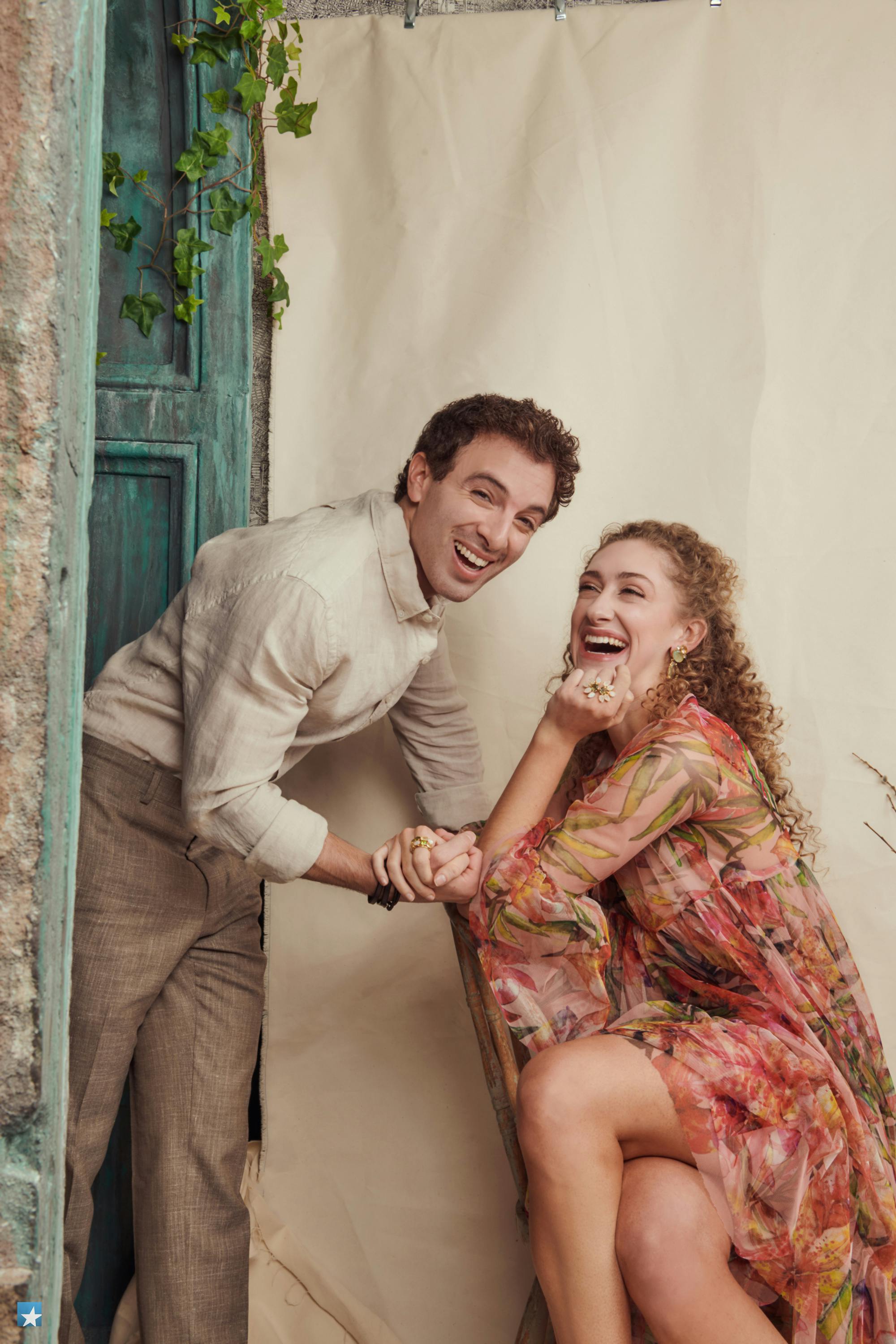
5. You found early fame on Star Search as a kid, but do you remember the first time that you felt talented?
I was singing before I can remember singing. My parents took me to a voice lesson when I was two and a half years old. I was on television every week in a local TV variety show in Philly called The Al Alberts Showcase when I was three years old. I have very vague recollections of that. Maybe it was the audition for Star Search. There was a reaction from the people in the room, and, I think even in my six-year-old mind, I knew that this was something different, and that I was different in some way. All my competition was twice my age and very much twice my size. It was bizarre, and I guess I sort of knew it was bizarre.
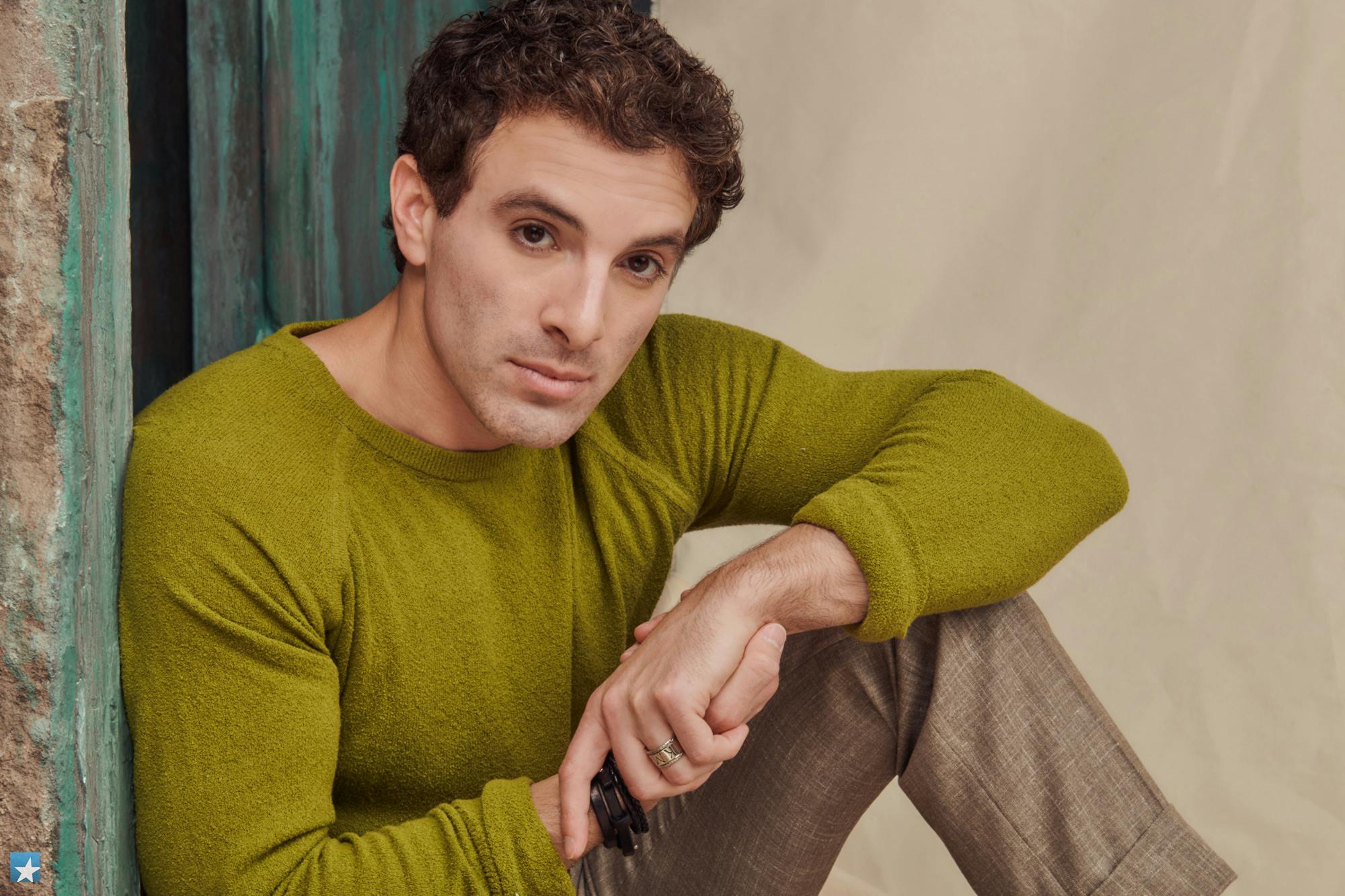
6. As a child, you appeared on Star Search and other TV, and made your Broadway debut as Gavroche in Les Miserables; then you took a break, and reemerged as an adult in Jersey Boys. What were those middle years like?
Star Search was very famous at the time and led to a lot of publicity, so I did a lot of touring around the country and singing at conventions and things. I was offered The Mickey Mouse Club when I was seven or eight years old with Justin Timberlake and Britney Spears and all them, but my parents refused to move to Orlando, and so that went by the wayside. Then I was cast in Les Misérables when I was nine, and I did that on and off for like three years. Then when I was fifteen, I did a sitcom pilot called The Larsons of Las Vegas. The president of NBC at the time, Warren Littlefield, said that this was a can't-miss show. It was about this professional gambler, played by Michael Rispoli (who was on The Sopranos) and the grandfather was Peter Boyle. The executive producer was from Mad About You and the writers were the book writers from Friends. I was an aspiring singer on the show, and I got to play the piano and sing. It was crazy exciting.
When the pilot didn't get picked up, I had a pretty significant reaction. I was home alone when the producer called to tell me, and in that moment, I knew that I was too immature to handle what I was going through. I told my parents, "I don't want to do this anymore. I don't want to feel this way. I just to be a normal kid." (For whatever the hell that's worth.) I still took lessons and continued to play the piano and sing and do school shows. I certainly used my Broadway street cred to get into Princeton, where I studied economics, finance, and Chinese. Then in the middle of my second year, I had a very real breakdown. That endless reservoir of energy for doing the work ran dry for me. I was pouring all of my efforts into the Princeton Triangle Club, which is this musical comedy group. I was living this dual life of being happy there and being truly depressed and miserable all the rest of the time. Hating my classes because I just didn't see a future in it. It seemed like an endless tunnel, and there was no light at the end. Graduation just meant more of a life I didn't want, and I cracked. I had to move home at the end of the year and try to figure out my life.
I sang with a wedding and bar mitzvah band for a year, just to have something to do while I lived at home. Then, at the end of that year, I moved to New York, and it was the first time I had been to New York since I was on Broadway. I remember hating the city, but suddenly I loved the city and I couldn't imagine being anywhere else. I started taking classes. I ended up at the Atlantic Theater Company, where I took real, hardcore, conservatory acting training for almost three years. When I got out, I was doing an off-Broadway run of Hamlet (playing Hamlet) when I auditioned for the first national tour of Jersey Boys. At night, I was doing these beautiful, legendary soliloquies, and during the day I was auditioning for Frankie Valli. It was this bizarre dichotomy. Then when I was cast in that, my adult career re-started.
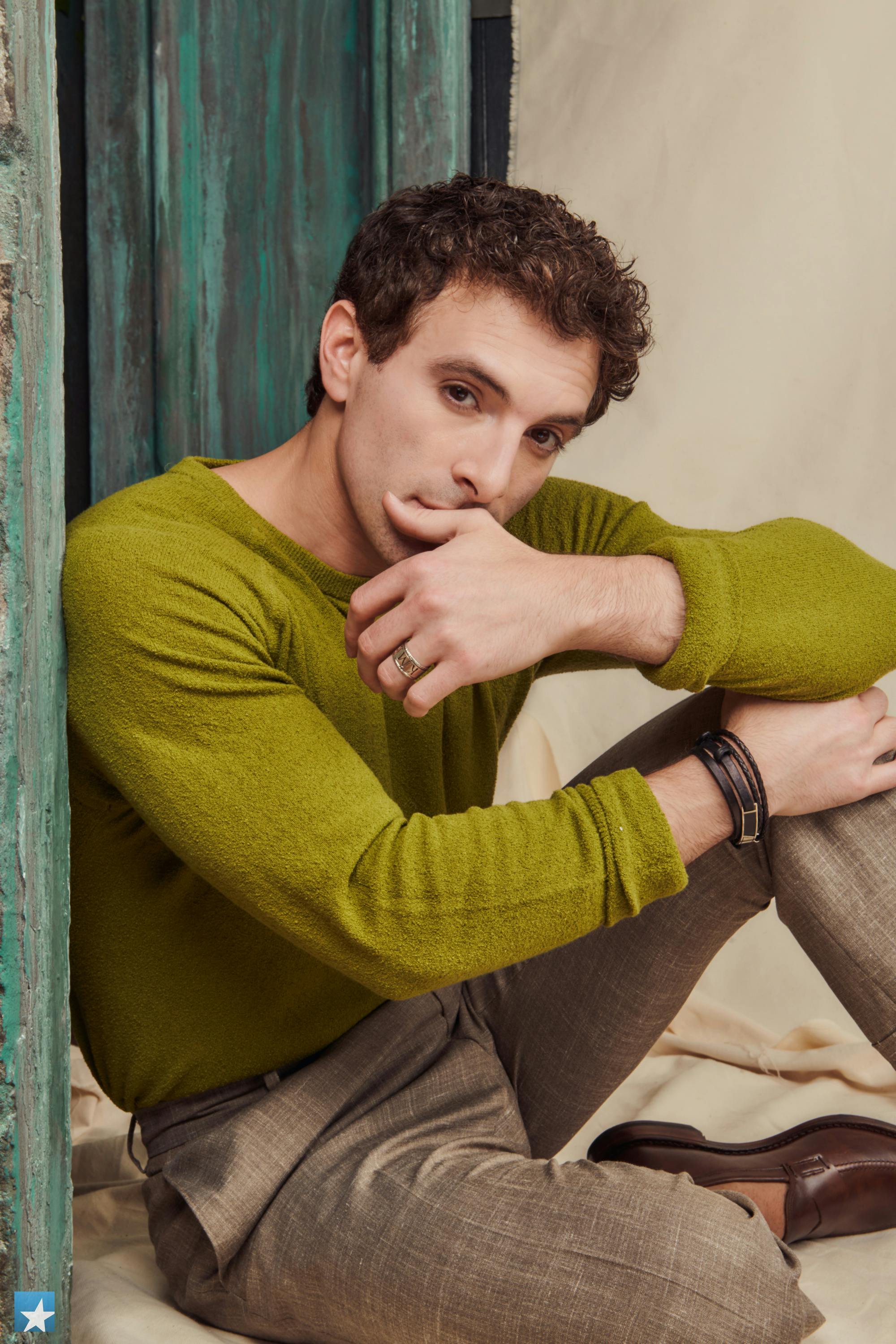
7. You have quite the dressing room at The Cher Show. What's the most sentimental thing you have in that space?
I have wedding pictures with my wife. That is the most sentimental. Basically, my entire dressing room is pictures of my wife and several of them are from our wedding. I also have the gift I was given by Rick Elice and Marshall Brickman on the opening night of Jersey Boys First National Tour, which was about almost thirteen years ago. It's Frankie Valli's mug shot, and it says, "from humble beginnings". I kept that with me, and I put it in every dressing room ‘cause I love the sentiment of it.
Photographed by Jenny Anderson at Haswell Green's. Assisted by Sydney Goodwin. Hair by Justin Bowen and makeup by Gianna Yanelli. Styling by Kae Manning Studio. Button down linen shirt in almond by Todd Snyder; boucle long sleeve sweater in green by Todd Snyder; linen trouser with cuff by Samuelsohn; Wooster Street penny loafer in cigar by Allen Edmonds.
